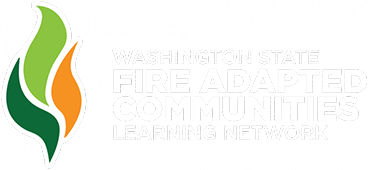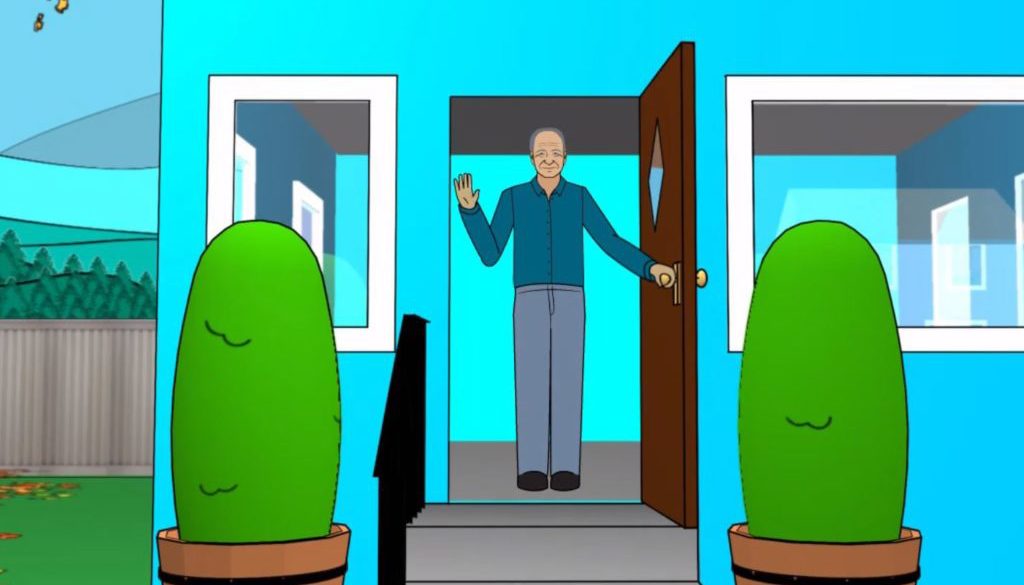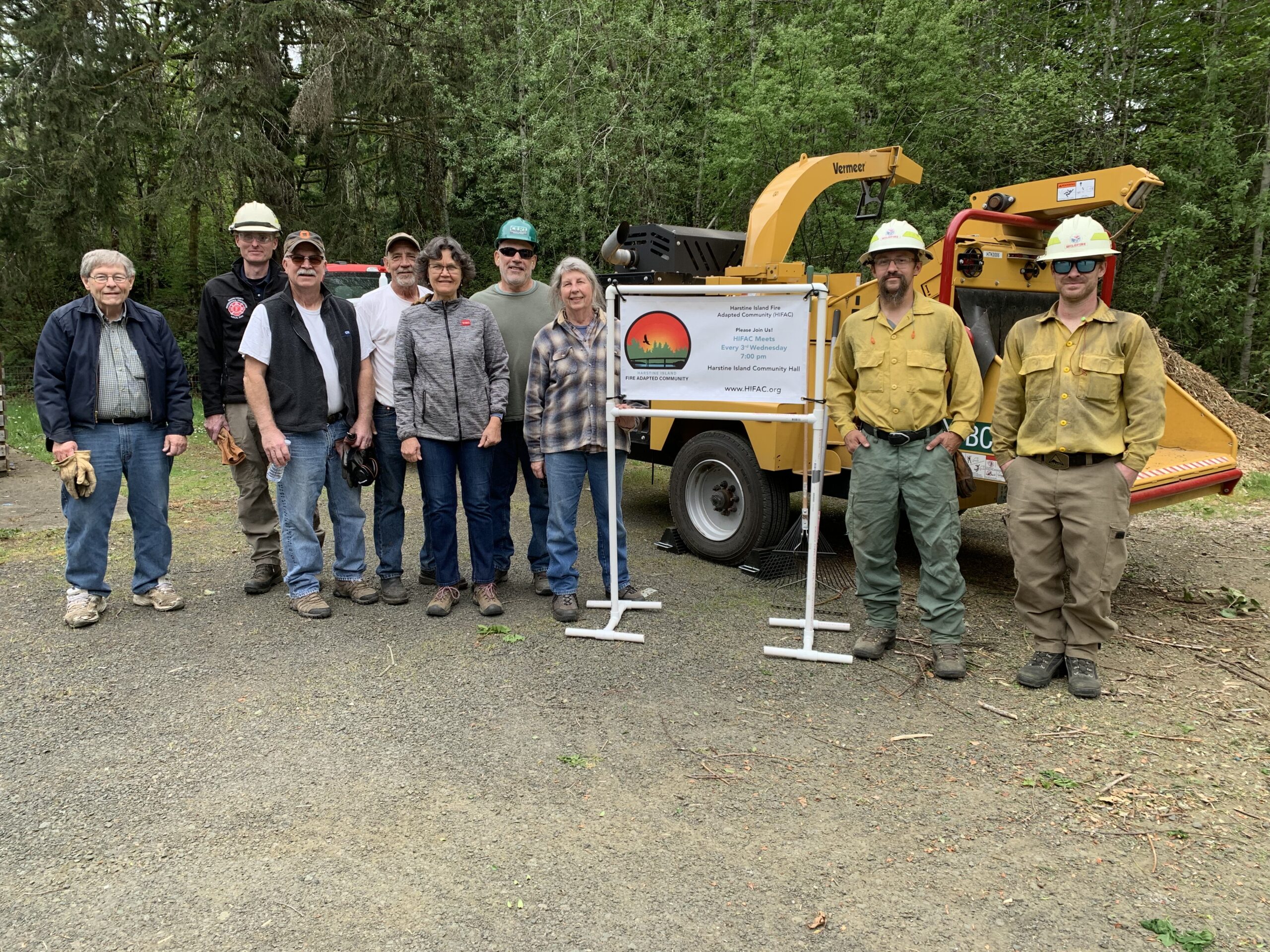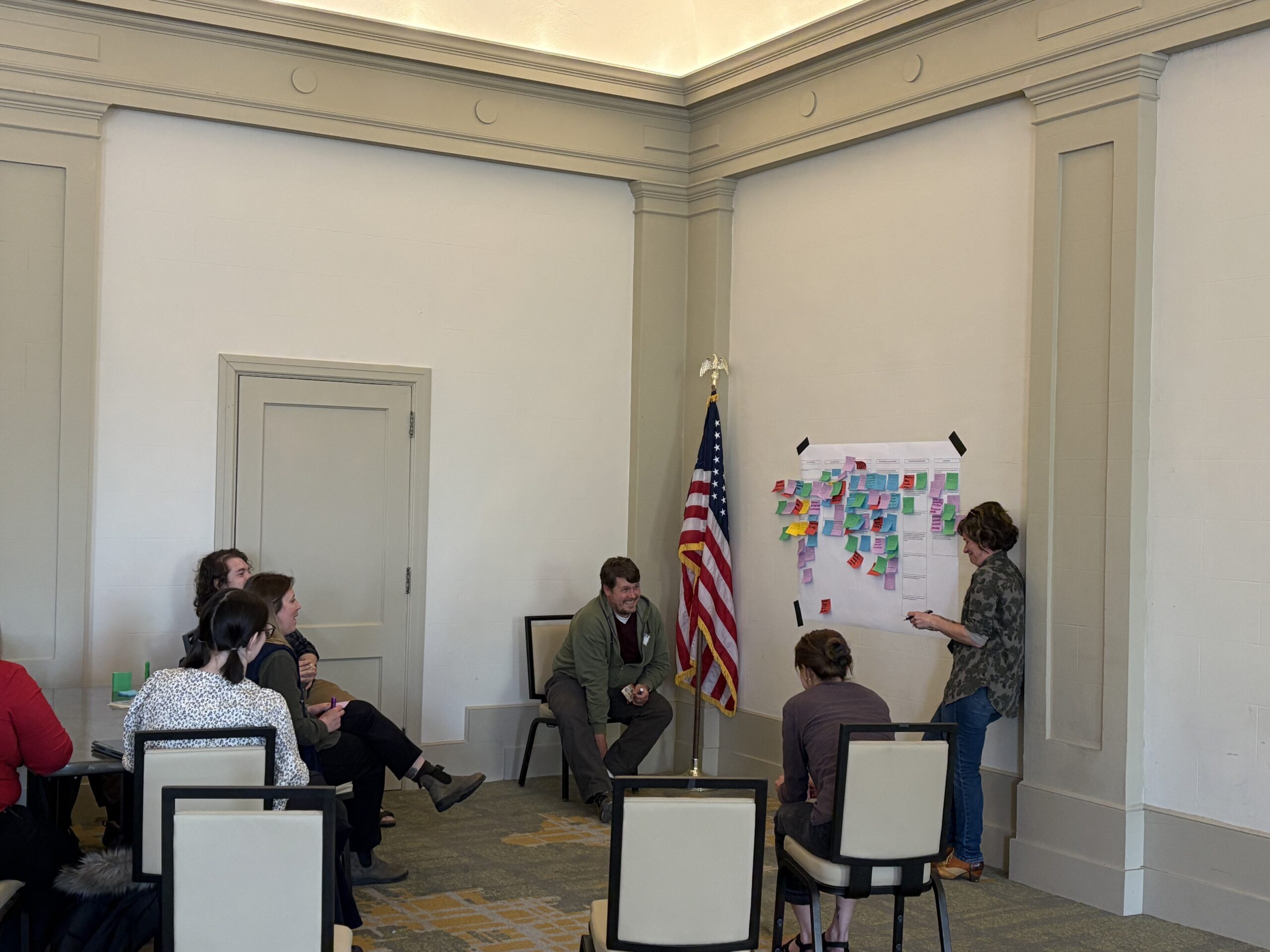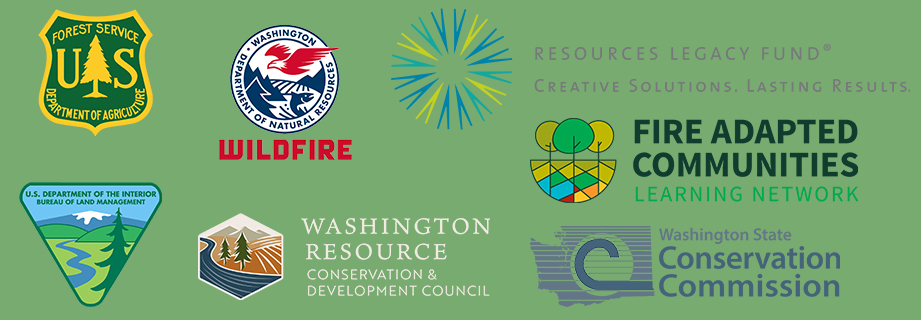“What are fire adapted communities and how do I know if I live in one?” is one of the most common questions we receive with respect to learning to live better with wildfire. “How can we become more fire adapted?” and “what does fire adaptation even mean?” are also fairly frequent. In order to answer those questions, and more, in a fun, engaging and inclusive way, WAFAC developed a short animated video. Click here to meet Fred, his friends and neighbors, and see how they have worked hard to become fire adapted!
Video development was a new process for us. It started with one script that was pretty dry and boring (but most of the early reviewers were too kind to tell me so). My 75-year old father was not shy however, and the concept was re-imagined to be less academic and Fred was born. Working with an animator was a blast – we were fortunate to find a talented and fun designer who even had wildland experience! She took our basic script and drew a storyboard to allow us to “see” how the video would come together. The storyboard really helped bring our script and the designer’s animation together in a way that allowed us to make sure we were all on the same page.
From there, we sent it out to reviewers (THANK YOU to all those who commented – you made this video both possible and significantly better). Changes were made to the language to make it less technical and more approachable. Maria Estrada with The Nature Conservancy provided review and input so that our depiction of Lupe and her bakery would accurately represent the many Mexican-American small business owners in Washington State (one of the fastest growing business sectors in this area). Maria is also providing feedback on the forthcoming Spanish translation. We worked hard to make sure the characters in this video represented all of Washington.
After that, it was more animating, editing and reviewing. We fixed things ranging from the amount of dirt and contaminants on Damien’s wildland PPE to the amount of vegetation shown in the community. Bonus points if you guessed we spent time adding MORE vegetation! We wanted to show a real community and not one that was paved. We also wanted to make sure to leave some work for Fred to do… anyone have suggestions for him? Being able to work with a designer to make those necessary changes was really important – time consuming, for certain – but a key part of making certain that the completed video was something that met our educational objectives. On a whole, this project definitely took more time than we anticipated, but we are pleased with the result.
We hope that you enjoy the video and find it to be a useful part of telling the story of living better with wildfire in your community. A video facilitation guide has also been developed to help guide community conversation . Additional resources, such as “Fred’s Fun for Families” and a Spanish language translation, are on the way.
